The state of the world is paradoxical. The good news is that the world income in 2018 was around $135 trillion according to the International Monetary Fund, measuring world output at "international prices." That was an average of roughly $17,500 for each of the 7.7 billion men, women, and children on this planet. That sum is obviously enough to end all extreme poverty, ensure universal access to healthcare and quality education, and to pay for the investments needed to ensure environmental sustainability for future generations and other species. We are indeed a rich planet.
Now, at the same time there are some other startling realities.
In the developing countries, children under the age of 5 still die in large numbers as the result of extreme poverty. It is estimated that around 1.7 million children under 5 years old died in the low-income countries in 2017, and another 3.6 million children under age 5 died in the middle-income countries. This compares with 74 thousand deaths of children under 5 in the high-income world. Almost all of the 5.3 million deaths of children in developing countries could actually be prevented, if the rich world would do more to help poorer nations to ensure access for their citizens to safe water and sanitation, adequate nutrition, basic health services, and safe energy (including clean cooking fuels and electricity).
That is not all. Despite ample sources of low-cost renewable energy such as wind, solar, geothermal, and hydropower, the world is still choking on fossil fuels (coal, oil, and natural gas). Solar and wind energy alone could provide thousands of times the energy needs of the planet, and yet we continue to burn fossil fuels, with resulting air pollution and human-induced global warming. It is estimated that several million people each year die prematurely as the result of diseases caused by air pollution. On the climate front, the news is ominous. We are rapidly running out of time to achieve the agreed objective of the Paris Climate Agreement to keep global warming below 1.5 degrees Celsius (measured relative to the pre-industrial average Earth temperature).
These paradoxical facts are the main motivation for the Sustainable Development Goals. The world is very rich and blessed with outstanding sustainable technologies and sources of renewable energy. If we choose, we can end poverty, protect the environment, and assure every child access to quality education and health care. Indeed, we could insure that every person on the planet is able to meet their basic needs for health, education, infrastructure, and a viable living standard. Long ago, these were declared to be human rights. Now, these rights can be ensured for every person on the planet.
Sustainable development is within reach for all.
The paradox is even sharper when we note how rich the world’s richest people have become. As of 2018, there were an estimated 2,208 billionaires in the world, according to Forbes Magazine, with a combined net worth of $9.1 trillion. Assuming a 6 percent rate of return on this net worth, that comes to around $540 billion per year of capital income for some two thousand two hundred individuals. At the same time, the low-income countries have a combined population of around 732 million with a combined income also around $550 billion. The capital income of the richest 2,200 people is therefore nearly equal to the income of the poorest 700 million people! This is an astounding world indeed.
It has recently been estimated that the violence, conflicts, military spending, other security spending, and loss of lives costs the world around $15 trillion in 2017 (according to the World Peace Index). Compare that with the best estimates of the costs of achieving the 17 Sustainable Development Goals, at some $3-$4 trillion a year. In other words, what we lose to war and violence, to armaments rather than plowshares, could easily fund the global transition to sustainable development. Note that the world’s tax havens are estimated to host well over $20 trillion of deposits, vast wealth that has escaped responsibility to society. All of the flows of funds to tax havens are potentially traceable through the banking system. Nonetheless, the rich countries that control the tax havens have enabled this system of organized tax evasion and avoidance to thrive, while preaching the importance of "the rule of law."
If we consider the challenges of the 17 Sustainable Development Goals, we can see five major challenges facing nearly every government in the world.
The first challenge is to ensure quality health and education for all. Without quality health and education, individuals will tragically fall short of their potential, and in the poorest countries, many will in fact suffer and die prematurely. Moreover, many desperate low-skilled people, unable to find adequate work in the low-income countries, will attempt to migrate to richer countries, causing a political and social backlash as well. The SDGs reiterate the world’s commitment to universal health coverage (SDG 3) and universal quality education at least through the secondary level (SDG 4). Currently in many low-income countries, only around 25% of boys and girls are finishing secondary school. The goal is to reach 100% completion rates in every country by 2030.
The second challenge is sustainable land, freshwater and ocean management, as covered especially by SDGs 2, 6, 14, and 15. As I travel the world for the Sustainable Development Goals, I learn that nearly every country is facing a crisis of land and water management. The crisis includes the loss of biodiversity, the degradation of soils, the growing shortage of freshwater, and the destruction of first-growth forests. These dangers are intensifying rapidly, faster than the political response.
The third challenge is healthful, productive, and safe cities, especially SDG 11. The world’s urban population is growing at a dramatic rate. By 2050, an additional 2.4 billion people will live in cities, above the 4.3 billion living in cities today. These expanding cities will need clean energy, safe water and sewerage, public transport, protection from climate change, and a safe environment for healthful and productive lives. Yet far too often, today’s cities are overwhelmed by rapid population growth, over-stretched infrastructure, and a lack of creditworthiness to invest adequately in the needed upgrading of physical infrastructure and urban governance.
The fourth challenge is the decarbonization of the global energy system. This is a sine qua non for planetary safety. By 2050, the world’s energy system should be decarbonized, meaning zero emissions of CO2. We will have to be driving electric vehicles. We have to be using electricity produced by wind, solar, hydroelectric, geothermal, and other zero-carbon energy sources, rather than fossil-fuel based electricity. We will need zero-carbon electricity to produce hydrogen and synthetic hydrocarbons in order to create clean energy for aviation and heavy trucks. Time is short. Every day we have new evidence that the world is at a perilous climate tipping point.
The fourth challenge is the challenge of good governance, which is essentially the challenge of honesty, fairness, participation and transparency. Good governance must be based on solid foundations of gender equality (SDG 5), reduced inequalities (SDG 10), and the commitment to peaceful societies (SDG 16) and global partnerships and cooperation (SDG 17). One key tool to promote good governance will be new digital technologies. By providing each individual with a unique online ID, and with proper regard for personal privacy, governments will be able to put key functions on line, ensuring access, transparency, and participation. Countries like Estonia are leading the way with e-voting, e-health, e-payments, and other highly efficient and convenient online services.
Fortunately, the world has the means, the technologies, and the wealth to accomplish all of these goals. We have some tremendous unprecedented opportunities in our generation. We are in the midst of one of the greatest scientific and technological revolutions in human history. Information and communications technologies can be the great friend of sustainable development. They can support new breakthrough ways to deliver healthcare, education, finance, governance, even to the most remote places on the planet.
We have the need, the opportunity and the will for great infrastructure development. The One Belt, One Road initiative, spearheaded by the People’s Republic of China, is the world’s largest and most significant infrastructure program in modern history. It will make an important contribution to wellbeing if it is implemented in line with the imperatives of sustainable development. In the United States, similarly, progressive thinkers are advocating a Green New Deal to modernize the infrastructure that is now several decades old and in a state of disrepair.
Africa too is engaged in many significant mega-infrastructure projects, which will positively transform the continent. There are opportunities all over the world.
Because of rapid technological advances, reduced costs of wind and solar power, better material sciences, nanotechnology, and new scientific breakthroughs the world can deploy massive renewable energy in places far from the grid. Many of today’s poorest places, such as the African Sahel, could achieve a breakthrough in economic development by harnessing solar energy at very large scale and exporting the high-quality solar power to other regions of the world.
Finally, we have the chance to mobilize the global pool of knowledge for human betterment. There are tens of thousands of scientific publications online that could be made available for free to students in low-income countries, that should be available for free for researchers everywhere. We can open up the knowledge pool so this is universally available to all—there is no excuse for not doing this. This knowledge should be available for the entire world.
So what are the obstacles to achieving the SDGs? We face several obstacles.
The first obstacle is the lobby of vested interests. Let us understand we are in a political struggle. The most powerful lobby in the world, still the coal, oil, and gas lobby, is resisting change. It is fighting for its survival, but fossil fuels will kill the planet if they continue to be used with current technologies. The only safe way to use fossil fuels in the future will be with carbon capture and storage (CCS). We have no possibility of continuing with coal, oil, and gas as we did in the 20th century. Yet much of the fossil-fuel industry is still fighting hard against needed decarbonization.
The second obstacle is the many super-rich individuals who resist taxation, accountability, disclosure, and who continue to fight for their tax havens and their tax secrecy. These super-rich individuals often have their hands on the levers of power. In the US, many super-rich individuals make large campaign contributions to influence the political system, for example, to promote tax cuts for the richest Americans. Sometimes there seems to be no limit to greed.
The third biggest obstacle are the wars that continue to claim lives, destroy property, overwhelm budgets, and direct attention away from vital needs. There are too many proxy wars, where rich countries support local wars in order to manipulate politics to the advantage of the outside powers. My country, the US, has been involved in countless proxy wars. These proxy wars, as in Syria and Libya in recent years, have been horrendously destructive for the local populations and have high costs with no benefits for the US.
The fourth obstacle is the lack of sufficiently bold strategies by government; the lack of boldness in thinking big—the idea that "business as usual" is inevitable. The world is changing faster than we can imagine, either for good or for bad. We need bold, big thinking if we are going to get the right side of this outcome.
In my own country, the coal, oil, and gas lobby still has its hands on power. That is why the current Administration announced that the United States would leave the Paris Climate Agreement in 2020. The fossil fuel industry contributed vast sums to the 2016 election, mostly for the Republican Party. These contributions are legal in the United States, but the practical effect is corruption just the same: the industry is able to "buy" public policies that are against the common good. Instead of such corporate corruption of politics, we need to hold all companies accountable to the common good because we are talking about nothing less than the safety of 7.5 billion people on the planet, not the wellbeing of a few shareholders of a few highly polluting companies.
What are the strategic next steps?
First, we need global compliance with the SDGs and the Paris Climate Agreement by the oil and gas industry. ExxonMobil, Chevron, Koch Industries—we cannot let a few powerful companies endanger the entire planet. We need all countries and companies planning for a decarbonized world economy. We need the countries in desert regions, such as North Africa, the Arabian Peninsula, the African Sahel, and Australia, to lead the conversion from fossil fuels to massive deployment of solar energy. The Gulf countries could remain the global energy powerhouse, but through solar power connected to a global grid rather than the export of oil and natural gas.
Second, we need Environmental, Social, and Governance (ESG) investing. There are tens of trillions of dollars now that are under ESG investing—responsible investing. There are an increasing number of stories of investors losing money because they are betting on fossil fuels rather than renewables. Those who bet their money on the destruction of the planet will end up losing everything. We need responsible finance to direct the vast resources that we have towards the right outcomes. There is no room in this world for investments such as the Keystone Pipeline (that aims to connect Canada’s oil sands with US refineries). We do not need dirty oil sands. Such an energy source cannot be profitable except in a world that is destroying itself. We must stop such dangerous investments.
Third, we need to mobilize one or more special SDG funds for the low-income countries. The developing countries need the help of the rich countries and the billionaires to pay for the SDGs. The IMF has done a detailed analysis of the fiscal (budgetary) costs of meeting the SDGs in the low-income developing countries. The IMF determined that these poor countries simply cannot achieve the SDGs out of their own resources. These countries need help, from the richest countries and the richest individuals.
The new SDG funds can help to ensure universal education and health coverage, including an end to the epidemics of AIDS, TB, and Malaria. All of this is within our grasp with a modest amount of increased financing. We need the billionaires to step forward with transparency and accountability. If the billionaires give (or are taxed) just one percent of their combined net worth, that would raise around $100 billion per year that could be directed towards the SDGs in the poorest countries. Just 2,208 billionaires could easily ensure that every child in the world has access to quality education and health care.
We also need to tax the trillions of dollars now in the tax havens. We need to redirect the nearly $2 trillion each year being spent on the military. Weapons sales are not jobs, jobs, jobs, as the US President has claimed. They are destruction, destruction, destruction. We don’t need jobs producing weapons systems. We need jobs for health workers, teachers, environmental workers, and construction workers, not jobs to make new weapons.
For many low and middle-income countries, we need a swap of debt for the SDGs. The recent economic history has left too many countries crushed by debt. It is time to let the overly indebted countries to redirect their debt payments to investments in the SDGs, in a kind of "SDG-debt swap."
We also need a tax on offshore deposits. Even a small tax on $20 trillion of holdings would produce the flows to achieve universal healthcare, universal education, fund the SDGs in the poorest countries. The tax havens are a game right in front of our eyes. It is a disgrace how the United States and UK manage the tax havens in the Caribbean and elsewhere for their convenience. The US hedge fund industry is heavily based in the Caribbean, tax-free. It is time to restore fair taxation.
I would also like to suggest that the UN Security Council take on more accountability and responsibility for the SDGs as well. Every one of the world’s conflict areas is an SDG disaster zone: a human tragedy, a blight, and an area where SDG progress is impossible. In many cases, powerful countries on the UN Security Council are actually fighting proxy wars, thereby keeping the conflicts going, whereas it should be the responsibility of the Security Council to end these conflicts.
We need to establish a "polluter-pay principle" for responding to environmental disasters. All over the world, poor countries are suffering from extreme droughts and floods and Category-5 hurricanes and other climate disasters. These countries then beg for aid to help them to recover. It is not really aid that they need, but rather compensation from the rich countries that caused most of the climate-change crisis in the first place.
Finally, we need technology road maps. We are in a wondrous time of technological advance. We have the possibility to create in a short— unprecedentedly short—period of time, a wholly sustainable and universally prosperous world built on advanced knowledge and technology. We have never had cycles of technological advancement as fast as we have them now. The world went from 20,000 mobile phones in 1980 to 7.5 billion today. In a short period of time, we can indeed transform the world.
Part of the solution to mobilizing technologies, know-how, and ethical decision making lies with the world’s universities, which are the main centers of learning, study, and education. To help achieve the SDGs, the UN Sustainable Development Solutions Network (SDSN) is working on mobilizing the world’s universities. Almost 1,000 universities and think tanks around the world are working together in the SDSN to support governments, civil society, and businesses to achieve the SDGs. I have great hopes that such a worldwide mobilization of knowledge and goodwill can provide inspiration and knowhow to help the world to achieve prosperous, fair, and sustainable societies.
Jeffrey D. Sachs is a University Professor and Director of the Center for Sustainable Development at Columbia University, and Director of the UN Sustainable Development Solutions Network. Read full bio here.




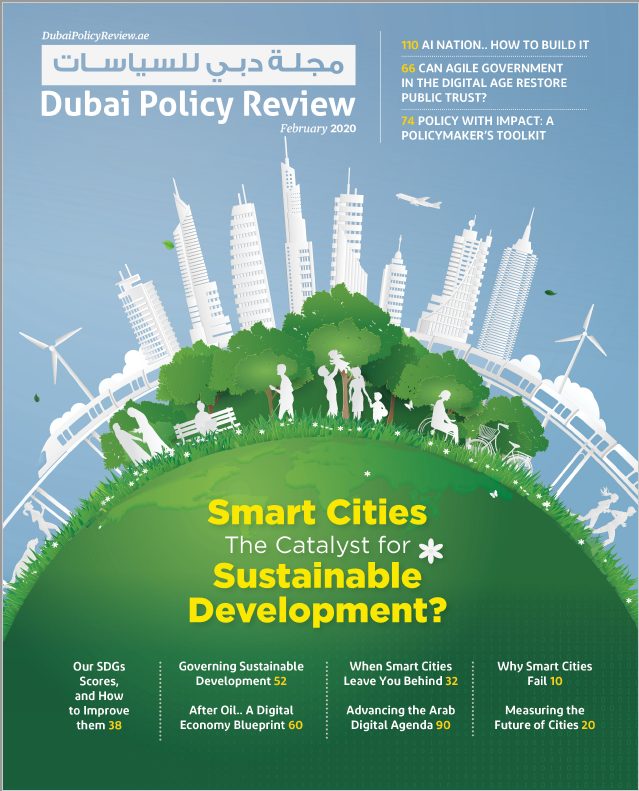


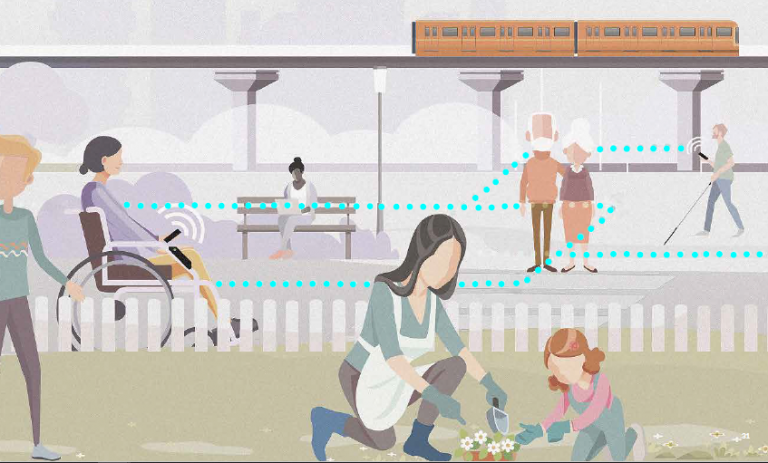

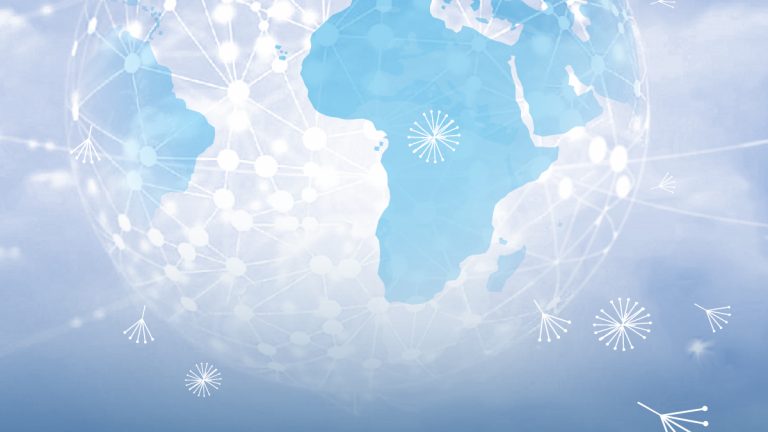
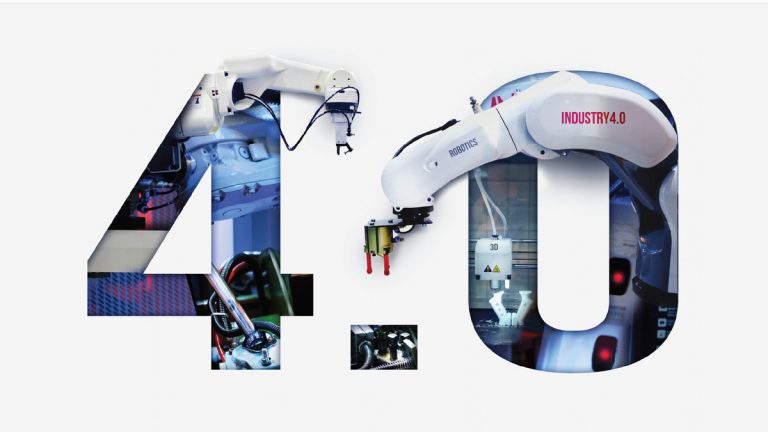
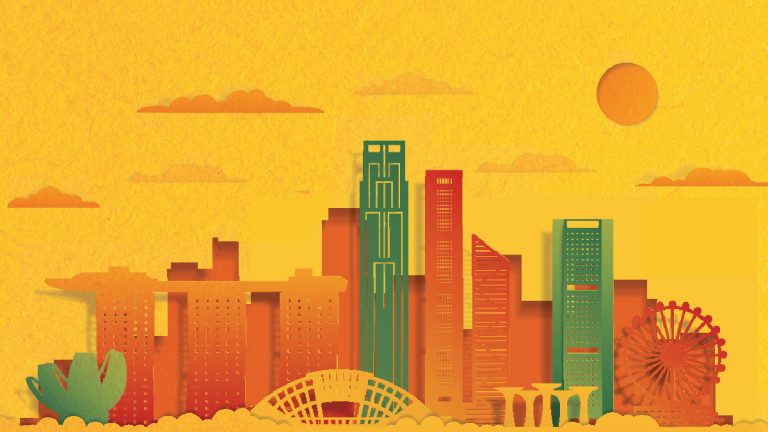

You must be logged in to post a comment.